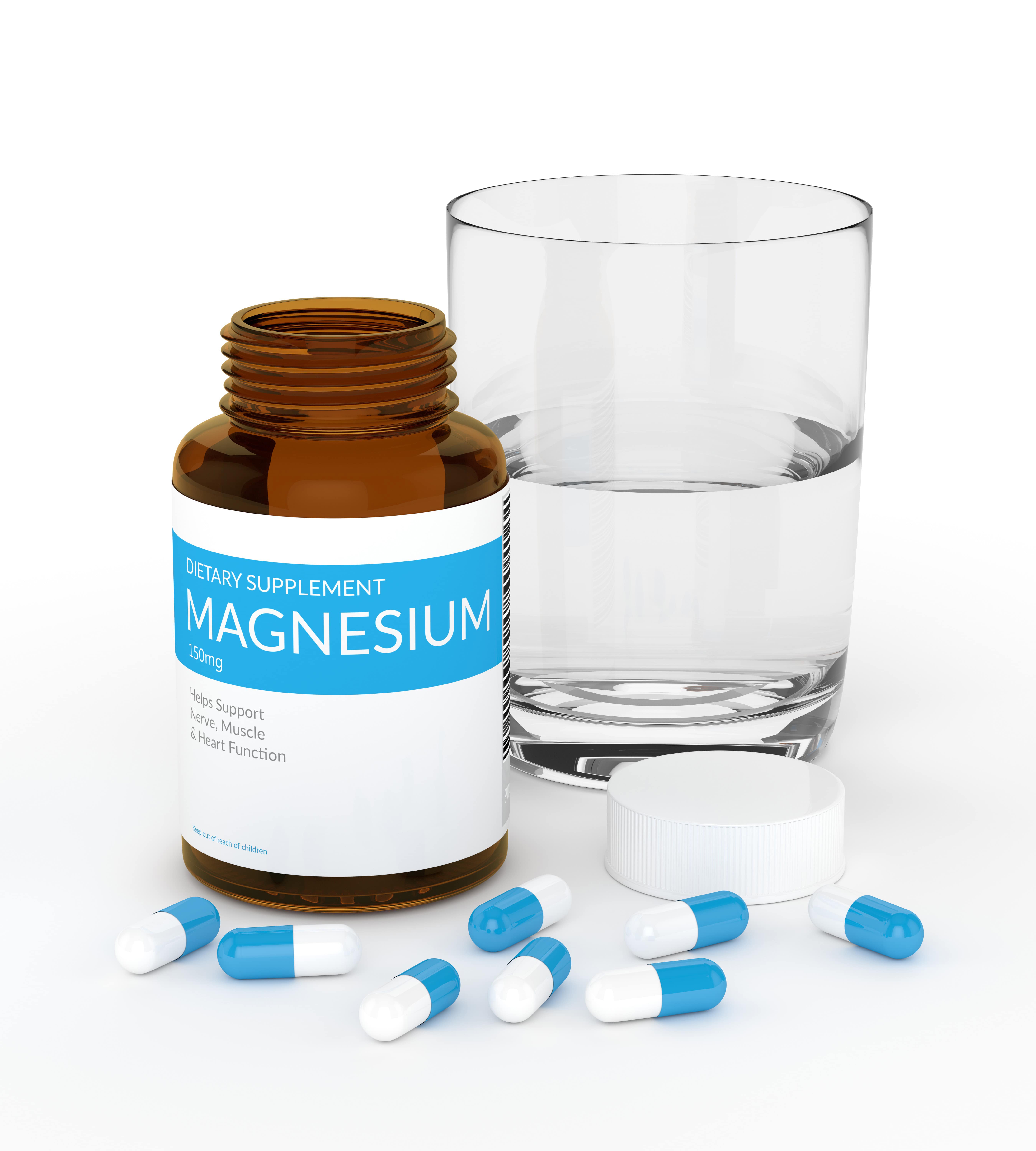 Magnesium is an often overlooked but extremely powerful mineral that's readily available as a supplement or through foods like nuts, seeds, chocolate, coffee, meats, and dairy products. To spotlight its importance to the body's overall function, we've put together a list of five top consumer concerns that can call for added magnesium.
Magnesium is an often overlooked but extremely powerful mineral that's readily available as a supplement or through foods like nuts, seeds, chocolate, coffee, meats, and dairy products. To spotlight its importance to the body's overall function, we've put together a list of five top consumer concerns that can call for added magnesium.
Lifts Mood & More
Magnesium supplements may help reduce blue moods and mild to moderate anxiety. In a randomized clinical trial from the University of Vermont, 126 adults were given the mineral (248 mg of elemental magnesium per day) for six weeks. The primary outcome was the net difference in the change in depression symptoms from baseline to the end of each treatment period, the researchers reported, and secondary outcomes included changes in anxiety symptoms. Effects were seen as early as two weeks into the trial. The researchers concluded: “Magnesium is effective for mild-to-moderate depression in adults. It works quickly and is well tolerated without the need for close monitoring for toxicity.”
Promotes Sound Sleep
Individuals who find themselves struggling with getting enough sleep at night often turn to supplements and medication to help address the issue. Researchers report that magnesium provides a natural approach to a restful night due to its effect on gamma aminobutyric acid, a neurotransmitter related to sleep.
In an analysis of three studies that had been conducted across three countries on 151 adults aged 55 and older who were suffering from insomnia, researchers concluded that, as oral magnesium “is very cheap and widely available,” randomized control trials (RCT) evidence may support magnesium supplements for improved sleep. The evidence suggests that individuals given magnesium supplements were able to fall asleep 17 minutes faster compared and stay asleep 16 minutes longer. One branded ingredient in this area: AIDP’s Magtein is a form of magnesium with demonstrated ability to pass the blood-brain barrier; it has been clinically shown to help promote healthy cognitive function by supporting a relaxed mood, sound sleep, and normal memory and learning. For a deeper dive, watch The Natural View: The Science of Sleep and Magtein.
Supports Bone Health
With 60% of our body's magnesium found within our bones, it's no surprise that it plays a key role in the maintenance of a healthy skeletal system. Research out of Australia has shown that low levels of magnesium not only pose a serious threat to bone health (osteoporosis) but deficiency has also been linked to high blood pressure, clogged arteries, hereditary heart disease, diabetes, and even strokes due to the essential minerals role in cardiac function, glucose and insulin metabolism, DNA synthesis, and nerve signal transmission. This is also a category that’s in demand: SPINS data from 2023 showed minerals focused on bone health grew 30% versus the previous year, with the majority of those items being magnesium products.
Boosts Physical Performance
Magnesium intake has been sought out by active individuals. Magnesium supplements have been studied for the effect on muscle soreness and athletic performance. Research conducted on college-aged male and female participants found that those who had taken magnesium felt a significantly reduced (1-2 points lower on a 6-point scale) muscle soreness when compared to those who did not. The researchers, reporting in Journal of Strength and Conditioning Research, noted: “Results show significantly reduced muscle soreness, session rating of perceived exertion, acute rating of perceived exertion, and improved perceived recovery after [magnesium versus placebo] supplementation and some evidence for positive performance impact.
Eases Headaches
Not only is Magnesium oxide helpful for headaches, it's good for the worst kind of headaches—migraines. A 2021 study evaluated 500 mg of magnesium oxide versus 400 mg of a migraine drug (valproate sodium) in the prevention of migraines without unwanted side effects. The results from the eight-week, randomized, controlled, crossover trial: “This study has shown that 500 mg magnesium oxide appears to be effective in migraine prophylaxis similar to valproate sodium without significant adverse effect.”










